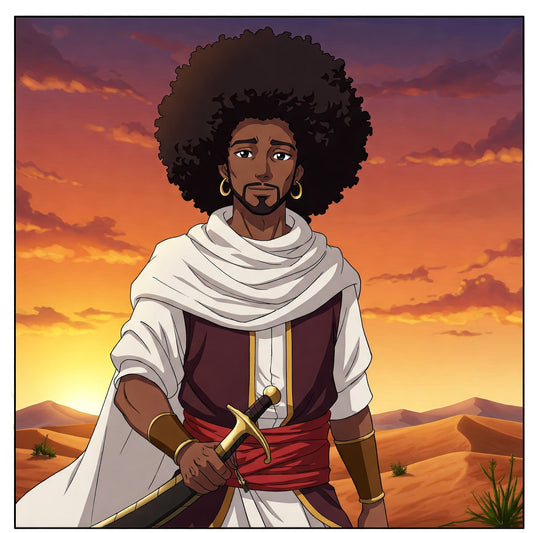
Bianou Festival: A Celebration of Tuareg Culture in the Heart of the Sahara
Zain ElhindiShare
The Bianou Festival, held annually in Agadez, Niger, is a vibrant and captivating celebration of Tuareg culture. This centuries-old tradition brings together communities from across the Agadez region to showcase their heritage, artistry, and deep connection to their Saharan homeland. More than just a festival, Bianou is a testament to the resilience and vibrancy of the Tuareg people, their traditions, and their enduring spirit.
A Tapestry of Culture and Tradition:
The Bianou Festival is a melting pot of cultural expressions, showcasing the diverse traditions of the Tuareg people. It's a time for communities to come together, reaffirm their identity, and celebrate their shared heritage. The festival coincides with the Islamic holy day of Ashura, marking the beginning of the Muslim year, adding a layer of religious significance to the festivities.
A Visual Spectacle:
Bianou is a feast for the senses, with vibrant colors, rhythmic music, and captivating performances. Traditional warriors, known as "takoubas," parade through the city on horseback, adorned in elaborate costumes and wielding swords and spears. Their displays of horsemanship and martial prowess are a testament to the Tuareg's warrior traditions.
Music and Dance:
Music and dance are integral to the Bianou Festival. The rhythmic beats of drums and the melodic tunes of traditional instruments fill the air, creating an infectious energy that moves through the crowds. Dancers, dressed in colorful attire, perform intricate steps and gestures, expressing the joy and spirit of the celebration.
The Etebel Drum:
At the heart of the festival lies the "Etebel," a large drum that symbolizes the unity of the Tuareg tribes. The Etebel is traditionally played by the Sultan of Aïr, the spiritual and cultural leader of the Tuareg people. The rhythmic beating of the Etebel brings together the community, fostering a sense of shared identity and belonging.
A Celebration of Identity:
Bianou is more than just a festival; it's a powerful expression of Tuareg identity. The elaborate costumes, the dances, the music, and the rituals all reflect the unique cultural heritage of the Tuareg people. It's a time for them to showcase their traditions, their values, and their connection to their Saharan homeland.
Tourism and Cultural Preservation:
The Bianou Festival has also become an important event for tourism in Niger, attracting visitors from around the world who are eager to experience the unique culture of the Tuareg people. This influx of tourism provides economic opportunities for the local community and helps to support the preservation of Tuareg traditions.
Challenges and Resilience:
The Tuareg people face numerous challenges, including drought, desertification, and political instability. However, the Bianou Festival serves as a reminder of their resilience, their strength, and their determination to preserve their cultural heritage. It's a celebration of their enduring spirit and their ability to adapt and thrive in a challenging environment.
Conclusion:
The Bianou Festival is a vibrant and captivating celebration of Tuareg culture, showcasing the rich traditions, artistry, and resilience of the Tuareg people. It's a time for communities to come together, reaffirm their identity, and celebrate their shared heritage. As the rhythmic beats of the Etebel drum echo through the streets of Agadez, the Bianou Festival serves as a powerful reminder of the enduring spirit of the Tuareg people and their deep connection to their Saharan homeland.





